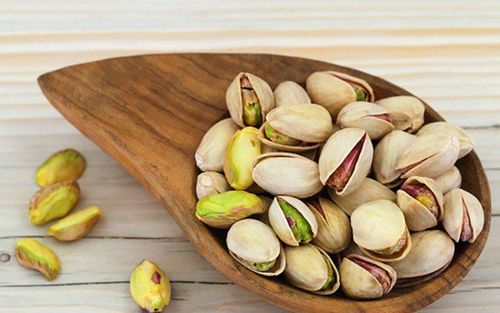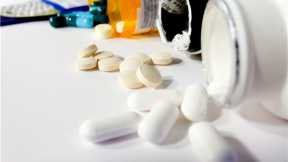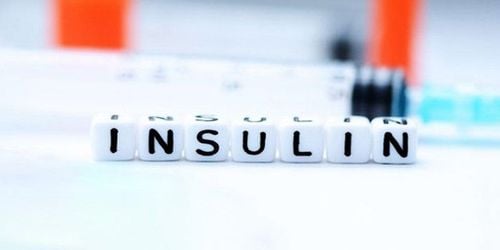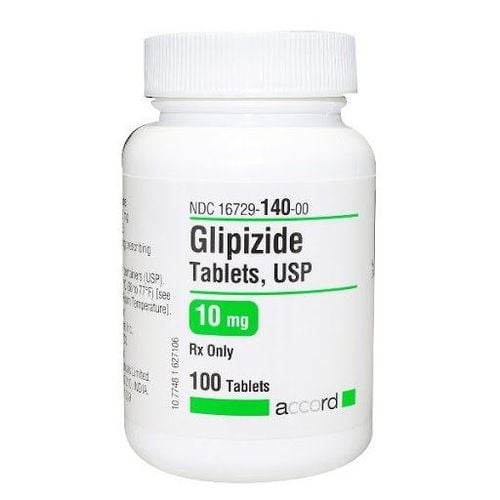This is an automatically translated article.
The article is professionally consulted by Master, Doctor Le Thi Minh Huong - Emergency Medicine Doctor - Department of Resuscitation - Emergency - Vinmec Nha Trang International General Hospital.1. What is hypoglycemia?
Hypoglycemia is a condition in which blood sugar (glucose) is too low. Glucose is your body's main source of energy. This condition is often associated with diabetes treatment. However, a variety of other conditions can cause low blood sugar in people without diabetes. Like fever, hypoglycemia is not a disease. It is a sign of a health problem.The body absorbs sugar through foods that are high in carbohydrates such as: rice, potatoes, bread, cereals, milk, fruit, and sweets. Sugar is stored in the liver and tissues as glycogen and is broken down into glucose for energy in the body.
2. Risk factors for hypoglycemia
Of all the organs of the body, the brain is almost entirely dependent on sugar (glucose). Rarely, if absolutely necessary, the brain will use ketones as a fuel source, but this is not preferred.The brain cannot make glucose on its own and is 100% dependent on the rest of the body for its supply. If, for some reason, blood glucose levels drop (or if the brain's needs are increased and the need is not met) there can be an effect on brain function.
Despite advances in the treatment of diabetes, low blood sugar is often a limiting factor in optimal blood sugar control, because many drugs are effective in the treatment of diabetes. There is a risk of lowering blood sugar too much, causing the symptoms of this condition.
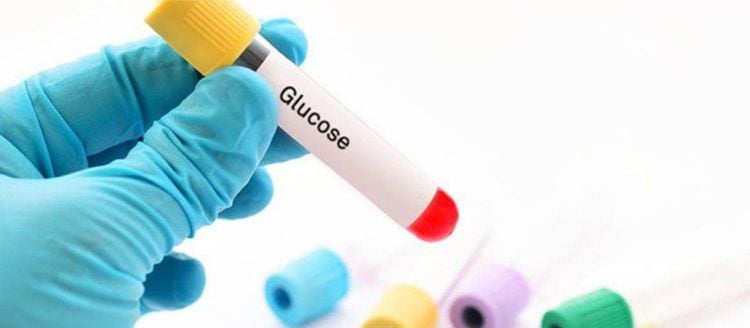
3. Causes of low blood sugar
Causes of low blood sugar include the following:3.1. Insulin Mismanagement Too much sugar in the blood can cause insulin to spike to high levels over and over again, which eventually causes insulin resistance (when cells stop responding to normal amounts of insulin). This can lead to diabetes or other symptoms of metabolic syndrome in some cases but also contributes to blood sugar fluctuations in people who are not considered to have diabetes.
3.2. Diet Consuming too little food over a long period of time without getting enough or lacking nutrients can contribute to hypoglycemia. Weight loss diets can also cause these symptoms, which involve eating small meals or skipping meals altogether. Several studies have found that food consumption is not the most commonly identified cause for episodes of severe hypoglycemia.
3.3. Using diabetes medications Diabetics are often treated with medications to compensate for resistance to the normal effects of insulin - in other words, to lower high blood sugar.
Medications that can contribute to low blood sugar include chlorpropamide, glimepiride (Amaryl), glipizide (Glucotrol, Glucotrol XL), repaglinide (Prandin), sitagliptin (Januvia), and metformin.
3.4. Excessive physical activity Exercising or not eating anything after exercise can cause low blood sugar. Muscles use blood glucose or stored glycogen to repair themselves, so it's important to refuel after a workout to prevent symptoms.
3.5. Other Causes Hormonal imbalances, autoimmune disorders, eating disorders, organ failure, or tumors that affect hormone levels can all affect the way insulin is released, and glucose is taken into cells. and glycogen is stored.
Alcohol raises blood sugar, but levels may then drop too low. Drinking a lot of alcohol without eating can prevent the liver from releasing stored glucose into the bloodstream. This causes low blood sugar.
Enzyme deficiency, some metabolic factors can make it difficult to break down glucose properly or let the liver release glycogen when needed.
4. Symptoms and signs of low blood sugar
Normal blood glucose levels are between 70 and 100 mg/dL when the patient is fasting (not immediately after a meal). The body's biochemical response to hypoglycemia usually begins when sugar is below 70 mg/dL (3.9 mmol/l)At this point, the liver begins to release its stored glycogen to convert into glucose (blood sugar) and the hormones mentioned above start working.
In many people, this process occurs without any clinical symptoms. The amount of insulin produced is also reduced in an attempt to prevent a further drop in glucose.
Although it varies from person to person, most will usually develop symptoms of low blood sugar when blood glucose levels are lower than 50 mg/dL. The first group of symptoms are called adrenergic (or sympathomimetic) because they involve the nervous system's response to hypoglycemia.
People with hypoglycemia may experience any of the symptoms of diabetic hypoglycemia including shaking, dizziness, headache, sweating and feeling hungry; heart palpitations, decreased vision, irritability, and pale skin. Because sugar is the source of energy for the body, people with low blood sugar often feel uncomfortable and tired. In case of sudden drop in blood sugar will cause fainting, more severe seizures can lead to coma.
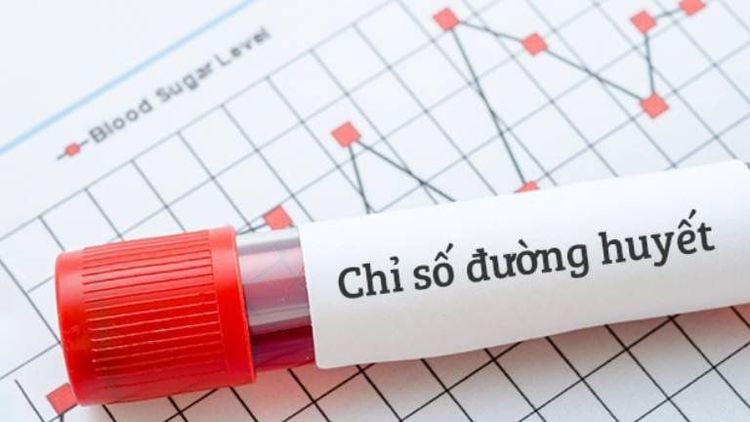
5. Complications of low blood sugar
Low blood sugar in diabetics for a long time can cause loss of consciousness, seizures because the brain needs sugar to stay active. A few cases resulted in death.On the other hand, care must be taken when treating hypoglycemia in patients with diabetes. Treatments to lower blood sugar can cause blood sugar levels to rise. This is also dangerous and can cause damage to nerves, blood vessels and various organs.
6. How to handle low blood sugar
The goal of the management of hypoglycemia is to detect and treat hypoglycemia immediately, by raising blood sugar as quickly as possible to a safe level to reduce complications and improve symptoms. Overtreatment should also be avoided as it can increase blood sugar and weight gain.Management of hypoglycemia should follow the "15/15 rule":
Measure blood sugar, if blood sugar is <70 mg/dl (3.9 mmol/L), eat or drink food containing 15g Carbohydrate and wait 15 minutes, then measure blood sugar again. If blood glucose remains <70 mg/dl (3.9 mmol/L), repeat the above procedure until blood glucose is > 100 mg/dl. Since blood sugar may continue to drop again after drinking or eating carbohydrate-containing foods, it is advisable to re-check your blood sugar every 60 minutes after treatment. Food equivalent to 15g of Glucose: 2 or 3 sugar cubes, 1/2 glass of any fruit juice, 1/2 glass of soft drink, 1 glass of milk, 5 or 6 candies, 15ml or 1 tablespoon of sugar or honey If hypoglycemia causes confusion, convulsions, coma:
Home treatment: absolutely do not open the patient's mouth to pour sugar water into the mouth, because when the patient is comatose, this can make the sugar solution into the respiratory tract and cause danger, even death. In the hospital: intravenous 20 or 30% hypertonic glucose solution or intravenous infusion of 5% or 10% glucose solution. If possible subcutaneously 1mg Glucagon. Patients with diabetes, when insulin is injected, must be injected 1-2 hours before meals. Before injecting, the patient should have a light meal to avoid discomfort and weakness.
In case of suspected pancreatic tumor, it is necessary to do ultrasound, abdominal computed tomography, endoscopic ultrasound... to detect the disease early and treat it promptly.
7. Prevention of low blood sugar
Eat in moderation, balancing meals with the amount of carbohydrates that your doctor or dietitian accepts. Eat enough carbohydrates before exercise and snack during exercise if necessary.Eat snacks as soon as sugar is too low or when experiencing symptoms of illness.
Check your blood sugar based on the schedule ordered by your doctor.
Do not ignore the symptoms of hypoglycemia or delay treatment of hypoglycemia because it can lead to coma and brain damage.
Don't be discouraged if you have type 1 diabetes and take time to adjust your insulin levels to be allowed to exercise.
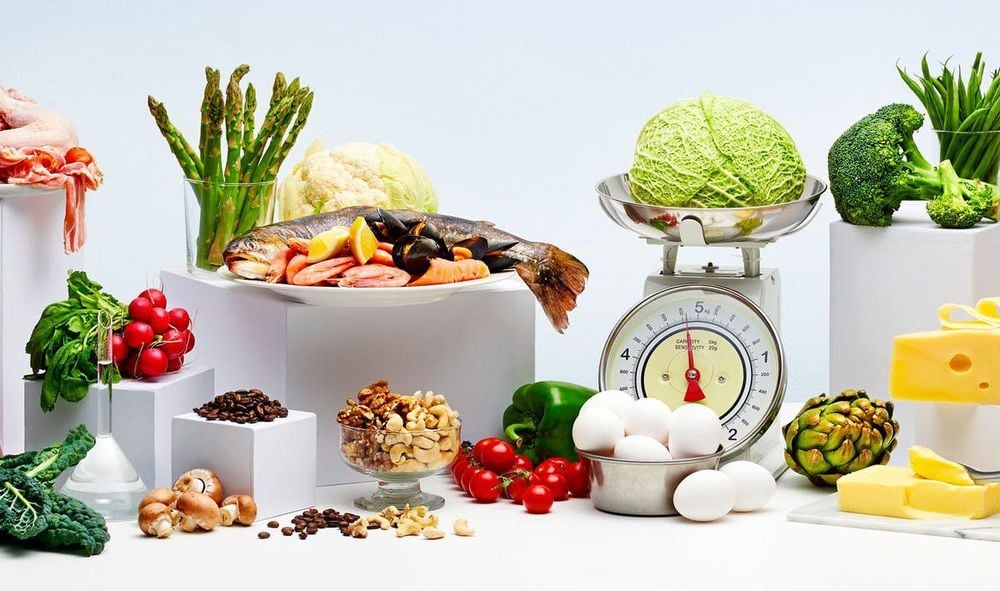
Follow the doctor's instructions, do not arbitrarily take drugs that are not prescribed or arbitrarily quit prescribed drugs.
When symptoms of hypoglycemia appear, you should ask your loved ones to take you to the nearest reputable medical facility for timely emergency care, especially for patients with diabetes to avoid causing complications. serious illness, even death. Patients with diabetes are at high risk of frequently experiencing this disease. To determine whether you have diabetes or not, you should have a diabetes screening test for timely treatment interventions.
Currently, Vinmec International General Hospital is providing a Diabetes Screening Package to help patients detect the disease early and improve treatment efficiency.
With this package, patients will receive:
Endocrine CK Exam (by appointment) Oral Tolerance Test (for customers with suspicious fasting blood sugar results) Glucose Measurement HbA1c Measurement Acidity Uric Determination of Cholesterol Determination of HDL-C (High density lipoprotein Cholesterol) Determination of LDL-C (Low density lipoprotein Cholesterol) Determination of Triglycerides Determination of Urea Determination of Creatinine Measurement of AST Activity (GOT) Measurement of ALT Activity (GPT) GGT (Gama glutamyl Transferase) activity.
Please dial HOTLINE for more information or register for an appointment HERE. Download MyVinmec app to make appointments faster and to manage your bookings easily.





